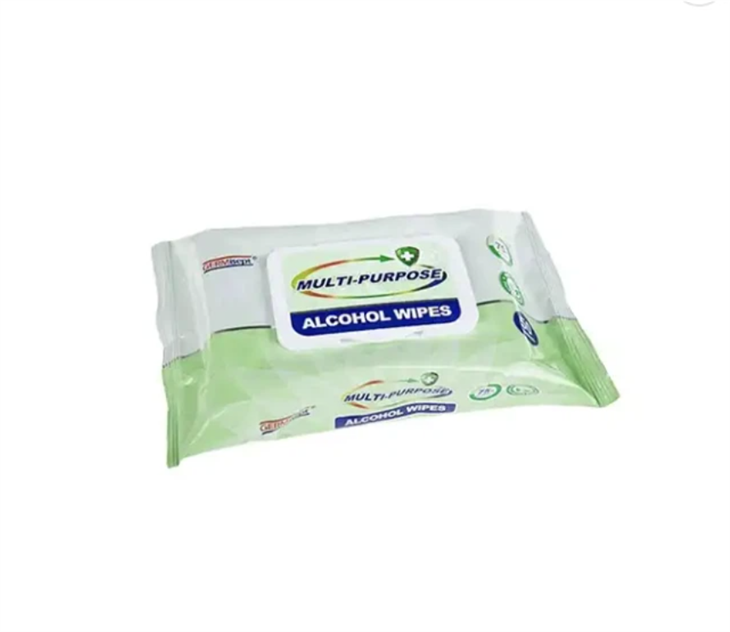In recent years, the environmental impact of consumer products has become a major concern for both consumers and businesses alike. Among these products, wipes—whether for personal care, cleaning, or hygiene—have come under scrutiny due to their disposability and the materials used in their production. As the demand for wipes continues to grow, so does the importance of understanding how eco-friendly these products are, and what manufacturers are doing to reduce their environmental footprint. Zhiyue Biotechnology, a leader in the wipes manufacturing industry, is at the forefront of this movement, striving to produce wipes that are both effective and environmentally responsible. But how eco-friendly are wipes manufacturers today, and what steps are being taken to ensure sustainability?
The Environmental Challenges of Wipes
Wipes have become an indispensable part of daily life, offering convenience and hygiene across various applications. However, their widespread use has raised several environmental concerns:
1. Material Composition:
Traditional wipes are often made from synthetic fibers like polyester and polypropylene, which are derived from petroleum-based resources. These materials are not biodegradable and can persist in the environment for years, contributing to plastic pollution in oceans and landfills.
2. Disposal Issues:
Many consumers dispose of wipes by flushing them down the toilet, leading to significant issues in sewage systems and water treatment facilities. Wipes that do not break down properly can cause blockages, resulting in costly repairs and environmental damage.
3. Packaging Waste:
The packaging used for wipes, typically made from plastic, adds another layer of environmental impact. Single-use packaging contributes to the growing problem of plastic waste, which is challenging to recycle and often ends up in landfills or as litter.

Steps Towards Eco-Friendly Wipes Manufacturing
In response to these challenges, wipes manufacturers, including Zhiyue Biotechnology, are taking significant steps to reduce the environmental impact of their products. Here’s how:
1. Use of Sustainable Materials:
One of the most important advancements in eco-friendly wipes manufacturing is the shift towards sustainable materials. Zhiyue Biotechnology is exploring and utilizing plant-based fibers, such as bamboo, cotton, and wood pulp, which are biodegradable and sourced from renewable resources. These materials decompose more quickly than synthetic fibers, reducing the environmental impact after disposal.
2. Development of Flushable Wipes:
To address the issue of disposal, Zhiyue Biotechnology is also focused on creating flushable wipes that meet stringent guidelines for dispersibility. These wipes are designed to break down quickly in water, minimizing the risk of blockages in sewage systems. The development of flushable wipes is a key step in reducing the environmental impact of wipes that are improperly disposed of.
3. Eco-Friendly Packaging:
Reducing packaging waste is another area where wipes manufacturers are making progress. Zhiyue Biotechnology is committed to using recyclable and biodegradable packaging materials whenever possible. This includes reducing the amount of plastic used in packaging and exploring alternative materials that have a lower environmental footprint.
4. Energy-Efficient Manufacturing Processes:
Beyond the materials used, the manufacturing process itself is a critical factor in the overall environmental impact. Zhiyue Biotechnology is investing in energy-efficient production methods that reduce carbon emissions and minimize waste. By optimizing water and energy use, the company is able to lessen the environmental impact of its manufacturing operations.
5. Certifications and Standards:
To ensure that their products meet high environmental standards, many wipes manufacturers, including Zhiyue Biotechnology, pursue certifications such as the Forest Stewardship Council (FSC) certification for sustainable sourcing of raw materials, and the European Union Ecolabel for products that meet rigorous environmental criteria. These certifications provide consumers with confidence that the products they are using are environmentally responsible.

The Role of Consumers in Eco-Friendly Wipes
While manufacturers play a crucial role in making wipes more eco-friendly, consumers also have a part to play. By choosing wipes made from sustainable materials, properly disposing of wipes (never flushing them unless they are specifically labeled as flushable), and supporting brands that prioritize sustainability, consumers can help drive demand for more environmentally friendly products.
Conclusion: Zhiyue Biotechnology’s Commitment to Sustainability
The question “Are wipes manufacturers eco-friendly?” does not have a simple yes or no answer. The industry as a whole is moving towards greater sustainability, but there is still work to be done. Zhiyue Biotechnology is leading the charge by adopting eco-friendly practices in material selection, production processes, and packaging. The company’s commitment to reducing the environmental impact of its products demonstrates that it is possible to balance convenience with sustainability.
As consumer awareness of environmental issues continues to grow, the demand for eco-friendly wipes will likely increase. Zhiyue Biotechnology is well-positioned to meet this demand, offering high-quality wipes that align with the values of today’s environmentally conscious consumers. Through continued innovation and dedication to sustainability, Zhiyue Biotechnology is helping to shape a greener future for the wipes industry.